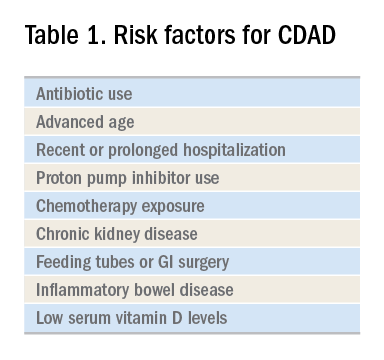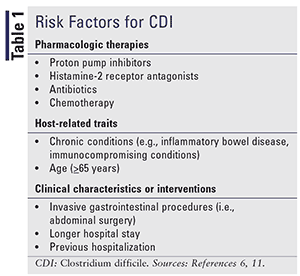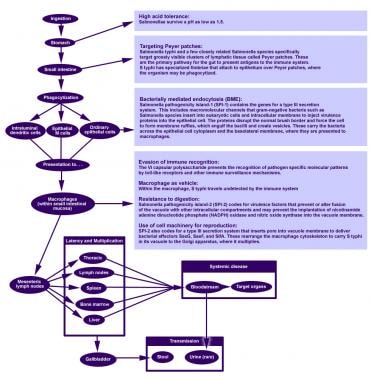Ad Wide species reactivity guaranteed quality. SIRP alpha antibodies for your research.
 How Do You Evaluate And Treat A Patient With C Difficile Associated Disease The Hospitalist
How Do You Evaluate And Treat A Patient With C Difficile Associated Disease The Hospitalist
It may seem odd to treat a condition caused by antibiotics with more antibiotics but since Clostridioides difficile is a bacterium antibiotics are the only way to treat the infection.

What antibiotics cause c diff. Difficile is a germ bacterium that causes severe diarrhea and colitis an inflammation of the colon. Antibiotic guidelines steadily adopted that evidence and prescribing of cephalosporins and quinolones decreased over the decade to 201314 in primary and secondary care in England. 1 Over the past decade the overall incidence rate of C difficile has increased outbreaks of virulent strains have been identified such as the NAP1BI027 and the risk of community-acquired C difficile has become more common.
Its estimated to cause almost half a million infections in the United States each year. Most cases are mild but Clostridium difficileinfection causes a spectrum of disease ranging from occasional diarrhoea to colitis toxic megacolon and potentially death. Diff also known as Clostridioides difficile or C.
The early 1990s the antibiotics most commonly reported as being associated withCdifficile infection were cephalosporins and quinolones. Diff while on antibiotics and during the month after. Diff will get it.
The treatment of C. Diff occur while youre taking antibiotics or not long after youve finished taking antibiotics. The class includes drugs like cefdinir Omnicef cefuroxime Ceftin and cefixime Suprax which are broad-spectrum antibiotics used for bacterial pharyngitis throat infection sinusitis and ear infections.
Diff mostly affects people who. People are 7 to 10 times more likely to get C. The antibiotics formulated to kill a wide variety of bacteria both the good and the bad are more likely to have this effect.
Agents occasionally reported to cause the disease include aminoglycosides trimethoprim-sulfamethoxazole metronidazole chloramphenicol tetracycline imipenem and meropenem. Diff bacteria is commonly found in the environment but most cases of C. This isnt a guanantee that it wont cause C.
Antibiotics Most Likely to Cause Diarrhea While any antibiotic can result in either mild diarrhea or C difficile colitis some have a higher risk of doing so than others. Have been taking antibiotics that work against several types of bacteria broad-spectrum antibiotics or several different antibiotics at the same time or those taking long-term antibiotics have had to stay in a healthcare setting such as a hospital or care home for a long time are over 65 years old. Up to 10 of patients do not respond to a course of one of the antibiotics and require retreatment more prolonged treatment or treatment with a different antibiotic.
At this point there are only two effective antibiotics vancomycin or fidaxomicin. September 28 2006 San Francisco Patients are more likely to acquire Clostridium difficile infection if they take imipenem ceftazidine clindamycin or moxifloxacin according to. 2 Given that any antibiotic.
Antibiotic-associated diarrhoea is among the most common adverse events related to antibiotic use. Instead your doctor may prescribe an antibiotic that targets C. Common antibiotics used to treat C.
Difficile colitis is with antibiotics primarily vancomycin and metronidazole. Diff bacteria such as vancomycin fidaxomicin or metronidazole. Most associated with C.
Many years later he was able to tolerate a Z-pak which is broader spectrum. Clostridium difficile C difficile is responsible for 20-30 of antibiotic-associated diarrhea cases and is the most common cause of infectious diarrhea in the healthcare setting. About 1 in 6 patients who get C.
Fidaxomicin Dificid metronidazole Flagyl vancomycin Firvanq. My son had C. Ad Wide species reactivity guaranteed quality.
Twice -- once from ERYC a form of erythromycin. SIRP alpha antibodies for your research. Any antibiotic including Flagyl on rare occasions can cause C.
Cephalosporins are another class of antibiotics that frequently cause C.


